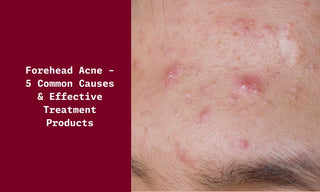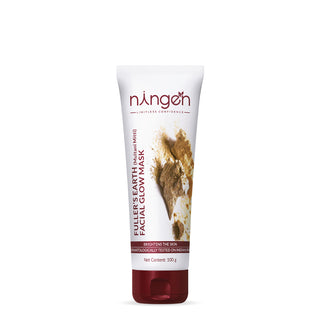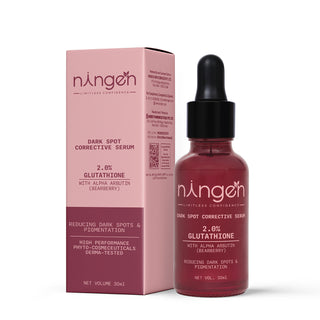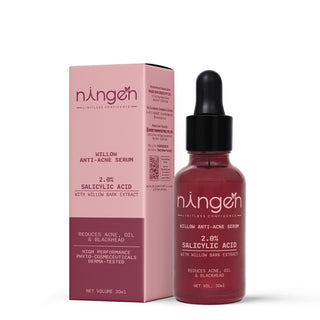Are you struggling with forehead acne? You’re not alone! Acne on the forehead can be especially frustrating and is often one of the first things others notice. It’s a tricky problem that can affect confidence and be tough to manage, especially when flare-ups happen out of the blue. In this guide, we’ll explore the five common causes of forehead acne and reveal effective treatment products. Read to the end for a wide range of solutions that can help clear those stubborn spots and give you back your confidence!
In This Article;
- 5 Common Causes of Forehead Acne
- 1. Hair Products: The Hidden Culprits
- 2. Pore-Blocking Cosmetics: Make-up and Skin Health
- 3. Hormonal Fluctuations: The Cycle of Breakouts
- 4. Stress: How Anxiety Affects Your Skin
- 5. Poor Skincare Habits: The Role of Routine
- 5 Effective Treatment Products For Acne
- 1. Salicylic Acid: Exfoliating to Unclog Pores
- 2. Benzoyl Peroxide: Killing Acne-Causing Bacteria
- 3. Topical Retinoids: The Power of Vitamin A
- 4. Chemical Peels: Professional Solutions for Clear Skin
- 5. Non-Comedogenic Products: Choosing the Right Makeup
- Effective ingredients to control acne
- Lifestyle Modifications to Support Treatment
- The Bottom Line
- TL;DR
- Frequently Asked Questions
5 Common Causes of Forehead Acne
Forehead acne is a frequent skin concern for many, caused by a variety of factors. Commonly, acne on the forehead emerges due to clogged pores from excess sebum production. Other culprits include hormonal fluctuations, stress, and poor skincare habits. Recognizing these causes is the first step in achieving clearer skin.
1. Hair Products: The Hidden Culprits
Hair products can be the hidden source of forehead acne. Oils, gels, and sprays often contain ingredients that cause clogged pores, especially around the hairline. Opt for non-comedogenic hair products to prevent breakouts and maintain a clear forehead.
2. Pore-Blocking Cosmetics: Make-up and Skin Health
Cosmetic products that block pores are a major contributor to forehead acne. Using non-comedogenic or oil-free make-up can minimize the risk. Ensure thorough cleansing with warm water to remove make-up and dead skin cells, keeping skin irritation at bay.
3. Hormonal Fluctuations: The Cycle of Breakouts
Hormonal changes, particularly during the menstrual cycle, can lead to increased sebum production and forehead acne. This is especially noticeable in adults dealing with adult acne. Prescription medication or oral medication might be necessary for severe acne related to hormonal imbalance.
4. Stress: How Anxiety Affects Your Skin
Stress can trigger acne by causing hormonal fluctuations that increase oil production. This results in clogged pores and acne getting worse. Practicing stress management techniques can help reduce the occurrence of forehead acne.
5. Poor Skincare Habits: The Role of Routine
Inadequate skin care can lead to forehead acne by failing to control excess sebum and remove impurities. Regular cleansing with suitable treatment products such as those containing salicylic acid and azelaic acid can prevent clogged pores. It's important to follow a consistent skincare routine that's tailored to your skin type.
5 Effective Treatment Products For Acne
Dealing with forehead acne can be frustrating, but the right treatment products can make a significant difference. It's important to choose products based on active ingredients known for combating acne while being mindful of your specific skin type. Here are some effective treatment options you should consider integrating into your skincare routine.
1. Salicylic Acid: Exfoliating to Unclog Pores
Salicylic acid is well-renowned for its capability to exfoliate the skin and unclog pores. This beta-hydroxy acid penetrates deep into the skin to break down excess sebum and dead skin cells, reducing the formation of clogged pores that can lead to acne. Look for facial cleansers, toners, and spot treatments with salicylic acid as an active ingredient for optimal results.
2. Benzoyl Peroxide: Killing Acne-Causing Bacteria
Benzoyl peroxide is a powerful agent in fighting forehead acne due to its antibacterial properties. By targeting and killing the bacteria that causes acne, it effectively reduces inflammation and prevents future breakouts. When using benzoyl peroxide, initially go for lower concentrations for avoiding potential skin irritation and gradually increase as needed.
3. Topical Retinoids: The Power of Vitamin A
Topical retinoids, derived from Vitamin A, are essential in treating various types of acne. They work by speeding up cell turnover, preventing clogged hair follicles, and effectively minimizing acne scars. Prescription medication options are available for more severe cases but over-the-counter treatments can be beneficial for mild to moderate acne.
4. Chemical Peels: Professional Solutions for Clear Skin
Chemical peels are professional treatments that remove the outermost layer of skin to reveal a clearer complexion. This procedure can effectively address excess sebum production & reduce the appearance of acne scars. It's advisable to consult with a dermatologist before choosing this option, as tailoring the peel to your skin type is crucial to avoid further irritation.
5. Non-Comedogenic Products: Choosing the Right Makeup
Choosing non-comedogenic products ensures that makeup doesn't contribute to clogged pores, making acne worse. These products are formulated to not block or clog the oil glands, reducing breakouts. Always look for labels that specify "non-comedogenic" to help maintain clear skin when applying cosmetics.
Lifestyle Modifications to Support Treatment
Effective forehead acne management often requires you to make a combination of lifestyle modifications & targeted treatments. By addressing various factors such as diet, stress, and skincare routines, individuals can reduce the likelihood of acne developing. These modifications, when integrated into daily habits, can significantly enhance treatment outcomes and promote healthier skin.
Diet Adjustments: Foods that Benefit Skin Health
A healthy diet can play a critical role in improving skin health. Consuming foods rich in antioxidants, like berries and leafy greens, helps combat inflammation. Omega-3 fatty acids found in nuts & fish are also beneficial. Limiting sugar and dairy products might help some individuals as they can exacerbate acne for certain people. Staying hydrated by drinking plenty of water daily supports overall skin health by flushing out toxins.
Stress Management Techniques: Reducing Breakouts
Stress is a known trigger for acne breakouts, including those on the forehead. Incorporating stress management techniques can help reduce acne episodes. Practices such as yoga, meditation, and deep breathing exercises are effective in lowering stress levels. Regular physical activity is another excellent way to manage stress, as it releases endorphins that improve mood and reduce stress-induced skin problems.
Consistent Skincare Routine: Importance of Regular Care
A consistent skincare routine is crucial in preventing and managing forehead acne. Cleansing the skin twice daily with a gentle, non-comedogenic cleanser helps remove excess sebum and dead skin cells that might clog pores. Using products featuring active ingredients like salicylic acid can target clogged pores and prevent acne from getting worse. Regular moisturizing, even for oily skin types, prevents dryness and irritation which can lead to acne. Consider incorporating prescription or over-the-counter treatments based on individual skin type and severity of acne.
The Bottom Line
Forehead acne can be persistent and frustrating, but understanding its common causes can make treatment much easier. By identifying triggers like hair products, stress, hormones, and poor skincare habits, you can take targeted action to prevent breakouts. With effective treatment products like salicylic acid, benzoyl peroxide, and non-comedogenic cosmetics, clear skin is within reach. Remember, lifestyle adjustments such as managing stress, following a consistent skincare routine, and maintaining a balanced diet play a crucial role in supporting clear skin. Patience and persistence with the right products and habits can help you achieve a healthy, glowing complexion.
TL;DR
Forehead acne is commonly caused by clogged pores, hormonal fluctuations, stress, pore-blocking cosmetics, and poor skincare habits. Effective treatments include salicylic acid, benzoyl peroxide, retinoids, and non-comedogenic products. Combining these products with a consistent skincare routine and lifestyle adjustments can help keep your skin clear.
Frequently Asked Questions
-
What are the common causes of forehead acne?
Forehead acne is often caused by clogged pores, hormonal changes, stress, certain hair products, and poor skincare habits. -
Can hair products cause forehead acne?
Yes, certain gels, oils, and sprays can clog pores around the hairline, leading to breakouts. Opt for non-comedogenic hair products to avoid this. -
How does stress contribute to acne on the forehead?
Stress causes hormonal imbalances that increase oil production, which can clog pores and lead to acne. -
What ingredients should I look for in treatment products for forehead acne?
Go for products that contain salicylic acid, benzoyl peroxide & retinoids. These ingredients help unclog pores, reduce bacteria, and promote cell turnover. -
How often should I reapply sunscreen to prevent forehead acne?
Choose a non-comedogenic sunscreen, and reapply every two hours, especially if exposed to the sun, to prevent clogged pores. -
Does diet affect forehead acne?
Yes, foods high in sugar and dairy can exacerbate acne in some people. Opt for a balanced diet with antioxidants and omega-3s to support skin health. -
How can I manage forehead acne caused by hormonal fluctuations?
Topical treatments and, in some cases, prescription medication can help manage hormonal acne. Consultation with a dermatologist is imperatitve for severe cases. -
Is it essential to have a consistent skincare routine for acne prevention?
Yes, a consistent skincare routine helps keep pores clear and manage oil levels, reducing the likelihood of acne. -
Can I use makeup with forehead acne?
Yes, as long as it’s non-comedogenic and removed thoroughly at the end of the day to prevent pore blockage.
10. Are there lifestyle changes that help with forehead acne?
Yes, regular exercise, stress management, staying hydrated, and maintaining a balanced diet can all help reduce acne.











